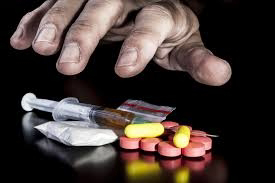By Chidinma Ewunonu-Aluko
The public has been advised against the practice of sharing prescribed medications with others, despite similarities in symptoms among the parties involved.
Two physicians, in separate interviews with the News Agency of Nigeria (NAN) in Ibadan on Thursday, highlighted the dangers of this common practice and other issues related to drug abuse.
Speaking in commemoration of World Drug Day, celebrated every June 26, the physicians called for collaboration between the public, medical stakeholders and the government to tackle drug abuse-related challenges.
Dr Waheed Adedeji, a Consultant Physician and Clinical Pharmacologist at the University College Hospital (UCH), Ibadan, urged the public to always visit hospitals when unwell.
Rather than receiving prescriptions from friends with similar symptoms, he advised them to always obtain medications from registered pharmacies with verifiable drugs.
“Take your medication exactly as prescribed. If you’re instructed to take one tablet four times a day, do not alter this schedule; avoid exceeding the recommended dosage.
“Follow your doctor’s or pharmacist’s instructions precisely, and inform your doctor or pharmacist if you’re experiencing worsening symptoms after taking a medicine; read the label and follow directions.
“Ask whether the medicine may affect your daily activities, such as driving or concentrating at school.
“You should also consult a pharmacist or doctor if you want to use an over-the-counter product while on prescribed medication.
“Inform your doctor and pharmacist about any other medication or herbal supplement you are taking to check for potential interactions.
“Notify your doctor if you are pregnant or might be pregnant, as some medicines can harm the baby,” he said.
Adedeji defines drug abuse as the persistent or sporadic use of drugs that are incompatible or unrelated to acceptable medical practice.
He gave the following as examples of such drugs: marijuana, Indian hemp, cocaine, heroin, alcohol, nicotine, prescription pain relievers (opiates like tramadol, morphine), sleeping pills like diazepam (Valium), etc.
He emphasised that drug abuse could result in significant social, physical, emotional, and occupational challenges.
According to him, the global effects of drugs on the body include increased body temperature, which can lead to further health concerns.
“These issues can impact nearly every organ and include weakened immune systems, heart diseases, abdominal pain, liver strain, lung disease, mental conditions, and impair memory, attention, and decision-making.
“During pregnancy, drug use may result in premature delivery, low birth weight, and smaller head circumference.
“Youth engaging in substance abuse are at an increased risk for mental health issues such as depression, conduct problems, personality disorders, suicidal ideation, attempted suicide, and suicide,” he said.
The consultant physician and clinical pharmacologist urged pharmaceutical companies to avoid misleading marketing practices.
Adedeji enjoined them to refrain from using sponsored and influential marketing campaigns or educational programmes to promote drug use, while downplaying the associated risks.
He advised pharmacies and patent medicine stores to adhere to legal and ethical guidelines, such as maintaining accurate records, verifying prescriptions, and adhering to dispensing limits for controlled substances.
“Pharmacies and patent medicine stores, due to their direct contact with patients and customers, should provide essential information regarding medications, including potential side effects and proper usage.
“Through patient counselling and education, they contribute to raising awareness about the risks of drug abuse and the dangers associated with illegal substances, while promoting responsible medication use.
“Pharmacies and patent medicine stores are responsible for regulating the sale of over-the-counter medications.
“They can effectively monitor and control the sale of these medications, thereby, contributing to preventing the misuse of over-the-counter drugs, which can potentially lead to drug abuse,” he said.
Adedeji further enjoined the government to enact laws and regulations for the safe and responsible distribution of medications and the promotion of drug safety.
He also called for the enforcement of laws against drug abuse.
“They should implement Prescription Drug Monitoring Programmes (PDMPs), establish stricter regulations to limit the overprescribing of drugs, and ensure accountability among healthcare professionals.
“Medications are used effectively to treat many illnesses, but drug abuse has serious consequences for individuals and society.
“Combating drug abuse requires the combined efforts of individuals, NGOs, civil societies, healthcare professionals, government, traditional leaders, and pharmaceutical companies,” Adedeji said.
Meanwhile, Dr Francis Sanwo described substance or drug abuse as the use of drugs in amounts or methods harmful to the individual or others.
NAN reports that Sanwo practises at Our Lady of Apostles Catholic Hospital, Oluyoro Oke-Offa, Ibadan.
He said studies made it clear that drug education and prevention aimed at children and adolescents offered the best chance to curb drug abuse nationally.
The family physician remarked that substance abuse without treatment could take a heavy toll on a person’s health, family and society.
According to him, prescription and Over-the-Counter (OTC) medicines can be as dangerous and addictive as illegal drugs.
He added that after marijuana, tobacco and alcohol, prescribed medications were substances most commonly abused by teens.
“You can abuse medicine if you take medicine prescribed for someone else, take extra doses or use a drug other than the way it’s supposed to be used,” he said.
Sanwo emphasises that smoking is responsible for nearly half a million deaths each year.
“Cigarette smoke contains thousands of other chemicals that damage health, both to the smoker and those around them.
“Hazards include heart disease, lung cancer and emphysema, peptic ulcer disease and stroke.
“Other effects of substance abuse include crime, diseases, trauma, risky behaviours, which can increase chances for teen pregnancy and contracting HIV, among others,” Sanwo said. (NAN)








